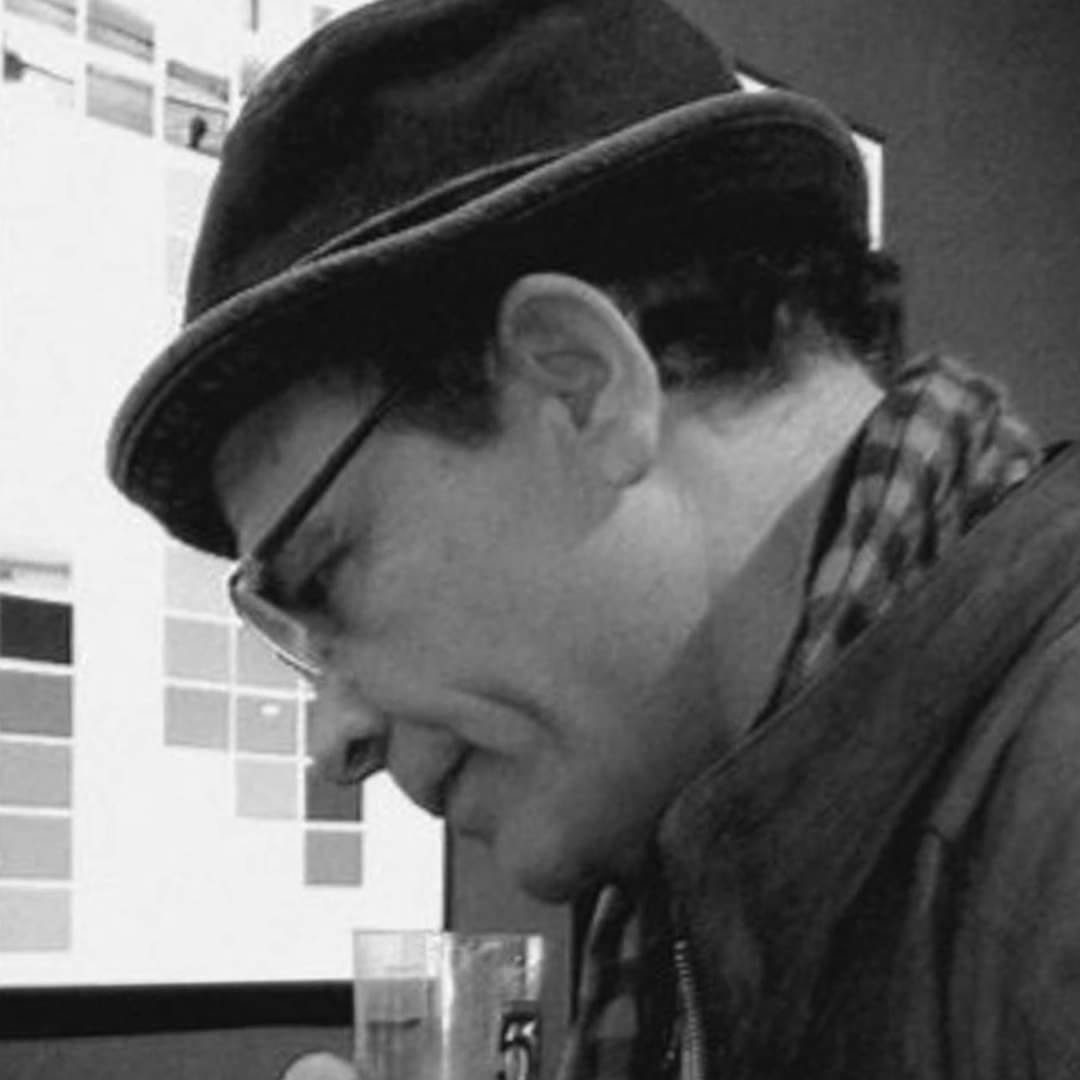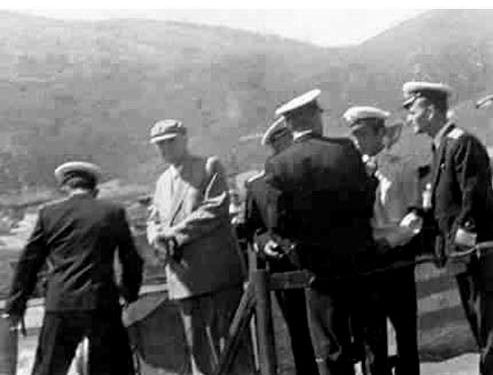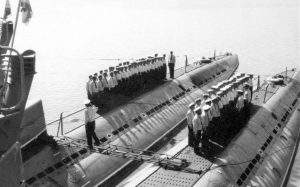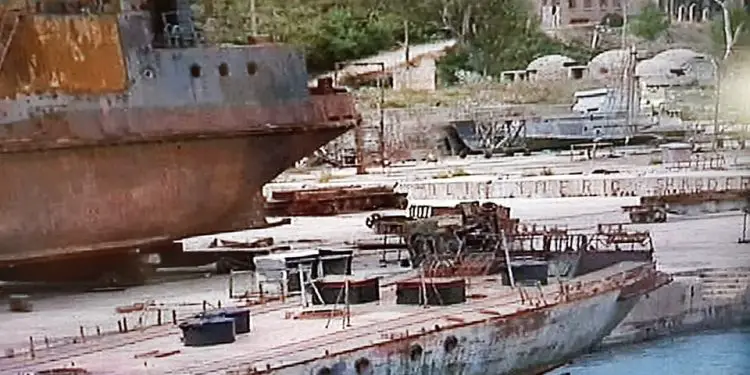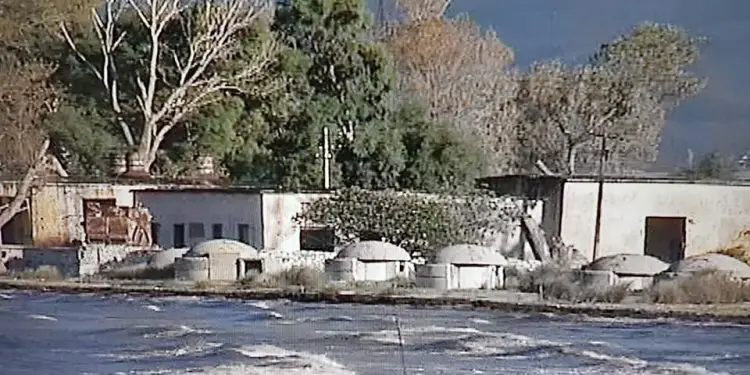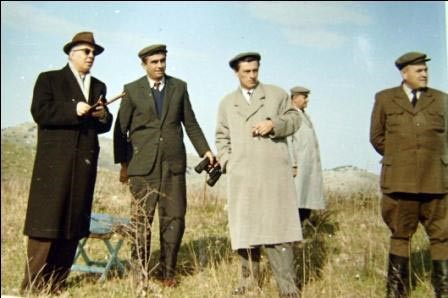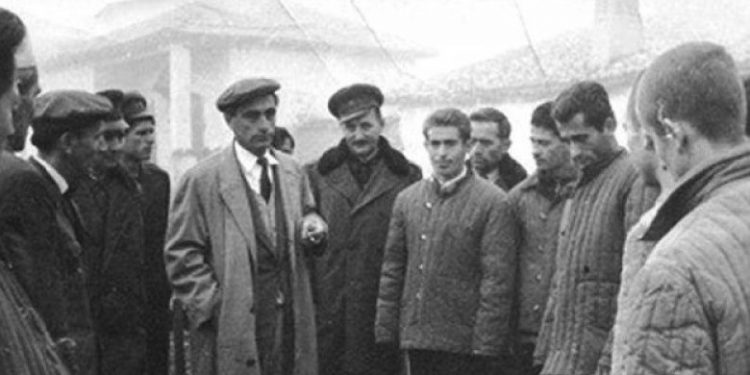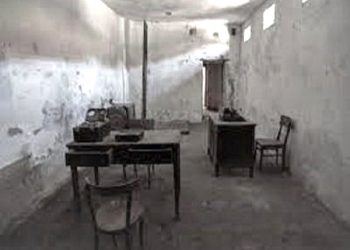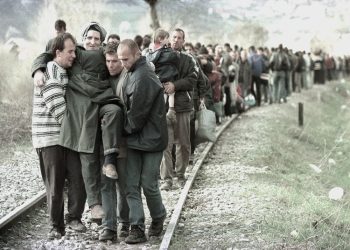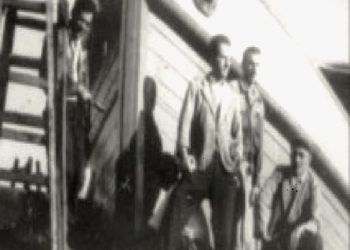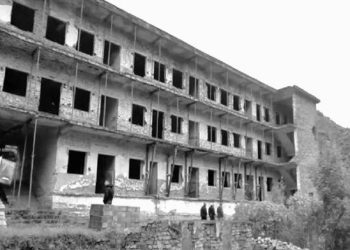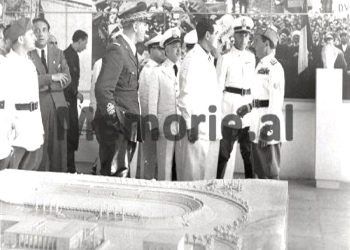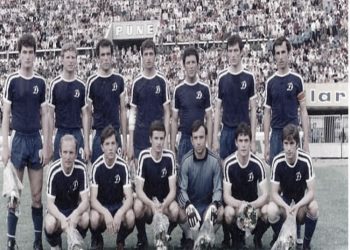By Vasil Qesari
Part eight
Memorie.al/ The overthrow of the great totalitarian edifice in Albania would leave behind, not only the change of the system, accompanied by lots of hopes, mirages and cries of happiness but, unfortunately, also many wounds, dramas, victims, dust, milk and whatnot lies of all kinds. Ten years and more after that event, which deeply shook society, completely overturning many previous codes, rules and concepts, people still continue to ask themselves such questions as: What really happened in society Albanian, during the last 50 years of the dictatorship? How was it possible that the system managed to warp everything? Why did people accept it? What was the totalitarian logic of the transformation of society and the individual? How were the structures of totalitarian mechanisms conceived and functioning: propaganda, secret police and the exercise of the ideology of terror? How did it happen that among all the communist countries of Eastern Europe, Albania was considered an exception or a special case? Why did Enver Hoxha remain blindly, fanatically loyal to Stalin until the end, turning the country into a prison where violence, fear and purges continued until the end of the 80s? Why was the country so insanely isolated, locking people up between bunkers and barbed wire? Why, then, did all the above phenomena happen…?! The book “Post-scriptum for Dictatorship” does not claim to provide definitive answers to the above questions, or the complexity of the reasons that brought and maintained the totalitarian power in Albania. Nor is it a complete, deep and comprehensive fresco of the life and suffering that people experienced during that system. Its author, perhaps, has the merit that together with the retrospective view of the totalitarian period as well as the zeal of a passionate analyst, he has tried to turn his head back once again, to give not only his personal memories and opinions, but also to return once again to the vision of that era with the simple philosophy of preserving the Memory and supporting the Appeal to never forget the well-known maxim, that…the corpse’s nails and hair continue to grow even after death! Ten years or more after the great revolution, the book in question has current value and we hope it will be appreciated by the reader because, as an Albanian researcher also says… the greatest evil that can happen to a people comes when he fails to analyze his own past. An amnesic people are forced to be constantly neuropathic and repeat their painful experiences…!
Continues from last issue
“The most valuable capital man”!
Passing through Elbasan Street, where the French and Italian embassies were located, according to the order of the officers, the tone of the songs rose higher and the line of students hit even harder on the asphalt. From across the railings, the members of the diplomatic corps greeted with encouraging calls: Bravo Albania..! Their smiling faces expressed approval, enthusiasm and satisfaction.
In the conditions of the Cold War, Albania’s exit from the Warsaw Pact was not only a unique act in the socialist camp, but also a success for NATO and the West. Because, first, for them, it was still fresh the fact that, just a few years ago, the Soviets and their Treaty had installed in Vlora the largest and only base in the Mediterranean Sea. And, secondly, because the breach of the Treaty caused by the Albanians could be followed by other breaches, inspired by their example.
Undoubtedly, the spectacular invasion of Czechoslovakia aroused great fear and panic in Enver Hoxha. What the Czechs had suffered could very well happen to the Albanians as well. Such a mess would have catastrophic consequences! Not more for the fate of the socialist homeland, than for the very continuation of the personal and absolute power of Enver Hoxha. Then, in such a situation, what should be done…?! The support of the People’s China, in case of aggression, was verbally promised, but it was too far away to feel safe.
A group of senior military officers, led by the Minister of National Defense, Beqir Balluku, gave the opinion that a possible intervention by the forces of the Warsaw Treaty was too difficult to cope with. According to them, the only possibility of resistance was the withdrawal from the cities in the depths of the country, as well as defense by conducting a partisan war. But, for Enver Hoxha, that thesis meant surrender and capitulation. According to him, the defense of the country should be organized wherever the enemy is, not a single inch of land should be left to him. But how? By what means? In which way…?
The torment of Zizyphus
The tragic fate of the Albanians resembled that of the hero of Greek mythology, Sisyphus, who, banished by Zeus to hell, was eternally condemned to push a giant rock towards the top of the mountain…! Poor Sisyphus! Every time, with all the might of the titanic sacrifice, he managed to get close to its peak, the massive rock escaped from his arms and rolled down. Then, he would go down full of fluids and start his eternal torment all over again.
Like Sisyphus, the Albanians were condemned for life by Zeus-Party, to carry in their souls the fear of siege and the endless anxiety of the threat of war. (Anxiety and fear, which would soon take the form of a super BUNKER, whose dome would cover the whole country and become synonymous with it.
Synonymous with life itself, the existence of their endless Golgotha). According to Ramiz Ali, Mehmet Shehu was the one who first came up with the idea of building hundreds of thousands of bunkers all over the country. But, it is said that, at that time (1974), Enveri considered his opinion unnecessary. Then, it was his own mind as a military strategist, which completely bunkered Albania.
(Such an action, as absurd as it is hallucinatory, was not just paranoia. Covering the country with bunkers, rather than a strategic action, would also have a great psychological effect on the people. In addition to generating a constant tension, it would also guarantee the total isolation of the country, keeping the entire society on alert and in a state of war and, in case of need, its complete sacrifice and destruction).
Thus, starting from 1978, Enver Hoxha unleashed on the Albanians the same curse and punishment, like Zeus on Sisyphus. A massive campaign to build bunkers began across the country, the number of which reached about 700,000. Endless mountains of cement, hundreds of thousands of tons of iron transported by trucks, mules and, especially by human arms, turned into bunkers, tunnels and fortifications.
An entire nation, dozens and dozens of construction enterprises, cement factories and iron plants, worked day and night only for the defense of the homeland. The party had issued the call: Homeland in danger! Defense of the homeland, done, duty upon duty…!
For a few years, the entire state border, where the enemies would try to enter, was reinforced with several generations of bunkers and fortifications. The landscapes of the Albanian coast, plains, hills and valleys were alienated. But, as if the mountains and plains were not enough, the authorities planted the last and only natural places of entertainment for people with bunkers. Every 30 meters, with surprising and revolting density, the beaches by the sea were disfigured by those hideous samples of reinforced concrete.
Surprisingly, it was precisely in such environments that more bunkers were installed than anywhere else! In fact, such an action was not simply of a defensive military nature. On the contrary, it was something well thought out and, even, a long shot. Malicious and diabolical, his message was profound and overwhelming. More or less, his mother text was this: Citizens! Get away from beaches, baths, sun, sea and fun! The homeland calls you for protection, vigilance and soldier’s sweat…!
The bunkers, which sprouted like mushrooms in all corners of Albania, became Sisyphus’s Rock for a whole people who, under the pressure of propaganda, were forced to believe that, through them, they could not only defend themselves but also break any attack from the outside. . The massive construction of bunkers was everywhere accompanied by a feverish militarization of the country.
Opposing the thesis of “Beqir Balluk’s coup group” on the army – barracks, nears every residential center and not only in them, but also in every corner of the country, thousands of small military units were installed, the main goal of to which former interaction with the military people.
On the Coast, the word goes, before the 60s, such units were symbolic and concentrated in three or four specific points. While, later, only in the town of Himara, from a platoon of soldiers that was before, several Special Brigades were created.
(In that area, in addition to the addition of troops, border posts and checkpoints were also set up, where the identity of every traveler was strictly controlled. Afterwards, the area of Himara became perhaps one of the most militarized places in the country, due to the beginning of the construction of a very strategic military base)
It was precisely, in the framework of that general militarization that the Party decided to build the Porto-Palermo Military-Naval Base. The peninsula, as small as a finger, 100 or so years ago, had not escaped the attention of Ali Pasha Tepelena’s insight. He had built a defensive and watchful fortress there.
No one, among all the generations who had lived in those parts, had ever thought that, a century later, exactly in the heart of that rocky bay, another fortress would rise, but this time underwater. Those harsh and simultaneously magical places, in the course of centuries, had seen all kinds of knights, weapons, captains, uniforms and flags.
Romans, Angevins, Saracens, Catalans, Venetians, Italians and Germans. But this time, visitors would come from far and wide. From behind the sun. From the deep steppes of distant Asia…! The party entrusted the construction of the Porto-Palermo base to Mao Zedong’s People’s China. The first Chinese soldiers in Himara appeared there from the beginning of the 70s.
Silent, discreet and in leek-colored uniforms, they did not stop at the town on the banks of the Ion, but continued on their way, where the properties of the Vizier of Ioannina lay. Just as the Soviets once chose Pasha Harbor for their largest base in the Mediterranean, the Chinese also decided to build theirs in a Pasha’s outpost.
The first reaction of the haughty inhabitants of the coast was dissatisfaction and anger. Especially, when they learned that the Qeparo-Himarë highway would no longer pass by the sea, over Porto-Palermo, but in the other direction. So, traffic on it would be interrupted, while the new replacement road would pass across the mountains, near Piluri.
Consequently, that beautiful part of the coast was declared a secret area and the surrounding area would be surrounded by barbed wire and soldiers. Indeed, before long, Himara would see as many soldiers as she had ever seen in her entire existence. And not just soldiers. Hundreds and hundreds of people, from the surrounding villages, of course with good biographies, started working in Porto-Palermo.
What was being built there? Since when? For what purpose…? Any details about those questions are very dangerous. People managed to learn only that a top secret military facility was being built and that was it. For more than 20 years in a row, there in the underwater rocks of Porto-Palermo, one of the most absurd battles of totalitarian existence took place.
Construction of a cyclopean tunnel for the accommodation of submarines. A tunnel, which, according to the Albanian surrealist strategy, would control every military movement in the Mediterranean…!
I had the chance to see that base, only once in my life. It was the year 1988. I didn’t even have the slightest idea about the size, shape and form of what had been built there for many years, therefore, when I encountered its appearance, I was surprised.
The surprise and confusion were so shocking that I will never forget them. Imagine yourself, at the entrance of a mega-tunnel of gigantic proportions. Right in the heart of a rocky mountain. In a work beyond the reach of human fantasy…! For a moment, I thought I was experiencing the phantasmagorical images of ancient Greek myths.
I went inside and, as long as I stayed in it, I felt myself in another world. Where was I?! In the cave of Polyphemus, in the hones of the Cyclops, in the underwater kingdom of Poseidon? O God! How was it possible that something like this, comparable to the pyramids of Egypt, had been made by the Albanians?
For years, people had fought and fought like crazy with the mountain. To rip his heart out of his chest. The eternal torment of Sisyphus was truly ridiculous, compared to that torturous work, as absurd as it was inconceivable.
But the Porto-Palermo hyper tunnel, built to accommodate the two only Albanian submarines, did not consist only of the cyclopean cave, as deep as it is high and closed with metal gates weighing tens of tons. An entire city could fit inside it. It is full of branches, annexes, offices, warehouses and areas where fuel tanks, weapons of various types, mechanical offices, and spare parts for the maintenance of Military-Naval vehicles, etc. were installed.
It was real madness to think that billions and billions of ALL were spent on their erosion and construction. They had bought huge, very expensive special machines in Sweden and, above all, they had employed thousands and thousands of people.
And this, why? Why? A thousand times, why…? When I left the Base, I was still stunned by the absurd and at the same time dizzying impression of such a human and financial mega-investment. (As much as the value of three hydropower plants, or perhaps, the construction of a more dignified life for a small people of three million). And my tormenting questions continued: Why were all those colossal human and monetary values and energy spent?
In the name of what utopia, an entire people were dragged away, leading a miserable life? In the name of what God, illusion, adventure or folly? It was late evening and the horizon over the Ionian Sea had taken on a blood-purple color.
Right next to the entrance of the Cyclopean tunnel of Porto-Palermo, moored at the pier, two old and rusty submarines swayed gently as if sleepily next to each other. How much toil and languor of Sisyphus was spent, to preserve their eternal rust. How much…! Memorie.al
The next issue follows




